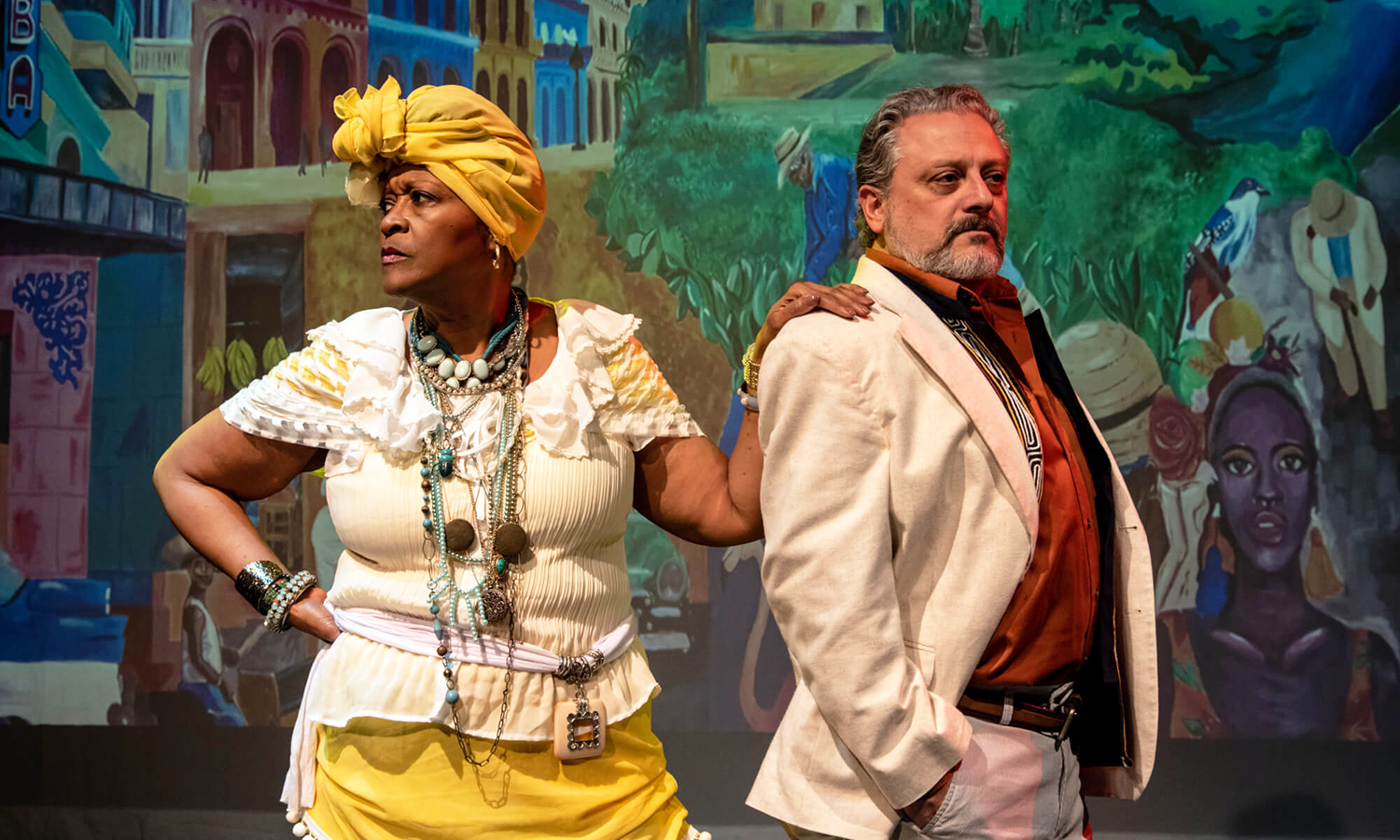Community, Leadership, Experimentation, Diversity, & Education
Pittsburgh Arts, Regional Theatre, New Work, Producing, Copyright, Labor Unions,
New Products, Coping Skills, J-O-Bs...
Theatre industry news, University & School of Drama Announcements, plus occasional course support for
Carnegie Mellon School of Drama Faculty, Staff, Students, and Alumni.
CMU School of Drama
Wednesday, September 16, 2020
Staging Bilingual Classical Theatre
HowlRound Theatre Commons: In the first wave of pandemic theatre, bilingual and semi-bilingual renditions of the canonized classics have figured prominently, from the Brave New Shakespeare Challenge at New York City’s the Public, which included sonnets and scenes partly or entirely in Spanish, to the bilingual shows Balcony Scene in Quarantine from the Latinx theatre company TEATRX in Houston and Dos Familias/Two Families at Central Florida Community Arts, to the recent Boston Foundation grant awarded to Queen Mab to create a combined spoken word/ASL version of The Tempest. In 2020, playing Shakespeare at least partially in another language became the thing.
Subscribe to:
Post Comments (Atom)

4 comments:
As someone who grew up within a bicultural and bilingual community, this is really cool. I remember noticing how there was an intangible division between both languages, how things didn’t translate well or didn’t translate at all. How, even when I was a kid, understood that not everyone had access to the same information and media because of the languages they could not understand. I think introducing Shakespeare in Spanish is a wonderful way to introduce the “father of relatable content” as I refer him, to Spanish speaking communities. I know Shakespeare is often regarded as a playwright only those well versed in English even understood, doomed to be left in the fog of ignorance. Now, this company is creating a way for more people to know his wok. Furthermore, it is allowing actors t push the boundaries of language and their own practical skills as performers.
This is pretty awesome! Using foreign language and using classical theatre to accentuate bilingual people I think is cool. I think it does for sure help open doors to underrepresented communities. It does, however, need to be done intelligently. The article mentions ways to introduce the concept of bilingualism and also just a foreign language in general. Shakespeare has used foreign languages in his plays, and, well, I do not know if they necessarily were the best. For example, in Henry V, Catherine and Alice exclusively speak French throughout. This scene hits a lot of points the article makes. Catherine and Alice speak French to show they are close. It also shows that they are the “others” in this play. It also is played for humor. The entire scene is Alice teaching Catherine English, but Catherine mispronounces words and accidentally says obscenities in French while trying to speak English.
Thinking of this in a modern way, care needs to be had while working in new languages into existing work. Each choice matters, and you need to right people making the most educated choice on making these changes.
I think this is a really neat article that points out ways that we can continue to revolutionize theatre and storytelling. I am monolingual, but have had the chance to see pieces in other languages or occasionally would throw in other languages. One production that I vividly remembers was the musical "Once" that I saw on the West End a few years ago. The two main characters (aptly named 'guy' and 'girl') clearly develop an emotional connection despite, even though the guy is trying to win back his ex-girlfriend. At one beautiful point, the girl says "I Love You" to the guy in Czech, which he does not fully understand. It was an incredibly powerful moment that highlights one of the points in this article: "For intimacy between characters". As JC points out, though, we need to be constantly questioning what our intention is when approaching bilingual scripts, let alone adding additional text into scripts. Not only will this push a productive conversation within the company, but it will help ensure the final product is portrayed truthfully and accurately.
As a Latino who loves Shakespeare, I’m very happy to learn that his plays are being staged in Spanish. I understand why a lot of people are over Shakespeare. He is the epitome of how we as a society elevate old white man to this echelon of greatness, which sometimes feels incompatible with their talent or skill, and really showcases how many great BIPOC artists are being left out of the mainstream to leave room for our “canon.” That being said, I do Shakespeare is great, As You Like It is one of my favorite plays. Therefore, the idea of taking his play, and not only adapting them to a modern audience, but to a modern bilingual audience feels so satisfying. I always get a warm feeling when Spanish is used in mainstream movies in a genuine way. The movie Coco reminded me so much of my family that it makes me really emotional to see those stories get to be told. If I get to watch a production of Midsummer or Hamlet and hear the code-switching that permeated my home on that stage, that is going to feel like a million bucks.
Post a Comment